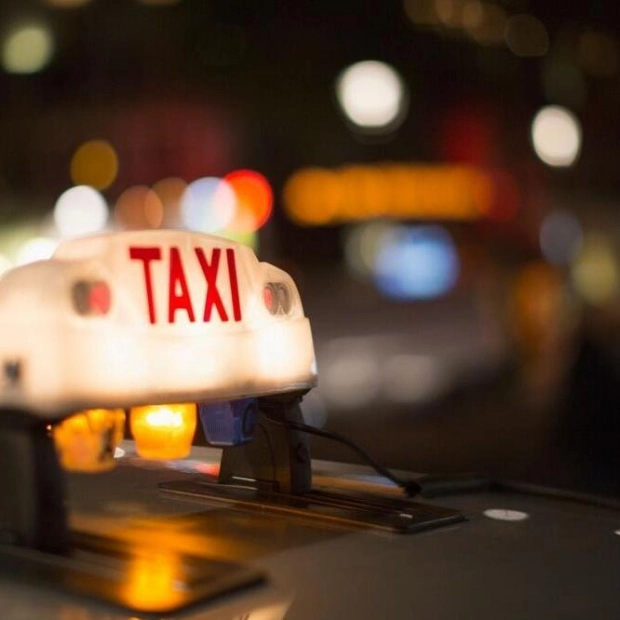Returning from a refreshing vacation and feeling down? As people come back from summer holidays, some find it hard to get back into their work rhythm, experiencing what is known as re-entry anxiety. Health experts say this condition is marked by hesitation and trouble getting back to work after a break and is becoming more common as more individuals focus on leisure and time off to deal with modern life pressures.
Psychologists note that re-entry anxiety shows up in different ways, such as restlessness, lack of motivation, trouble focusing, and even mild depression. The sudden shift from a calm, stress-free holiday to the pressures of the workplace can be tough, leading to a period of adjustment that can greatly affect productivity and overall well-being. If this sounds familiar, remember, you're not alone.
'Struggling to readjust' Abdullah, a 35-year-old government employee in Abu Dhabi, recently came back from a 10-day trip to Moscow. 'My journey was packed with cultural experiences, relaxation, and quality family time. Yet, upon my return, I struggled to adapt to work life. My office counselor suggested I take two more days off and work from home,' he recounted. 'After coming back, I felt unmotivated, had trouble concentrating, and felt restless and uneasy. Even small tasks at the office seemed like a heavy load,' he added.
'Difficult to regain focus' Similarly, Ahmed Najeeb, an engineer in Dubai, recently returned from a 10-day visit to his hometown of Mangalore, where he enjoyed precious family time during the summer break. 'The joy of being with loved ones, the comfort of familiar surroundings, and the break from my usual routine gave me much-needed relaxation and happiness,' said Najeeb. However, upon returning to Dubai on July 19, he started experiencing re-entry anxiety. 'The transition from the warm, loving environment of my hometown to the fast-paced, demanding life in Dubai has been challenging. I'm struggling to focus at work and feel persistently restless,' he explained.
'Re-entry anxiety is normal' Healthcare professionals note that it's common for employees to feel stressed or anxious when returning to work after a vacation. Humans naturally seek comfort in familiarity, and a break from work can become the 'new normal'. When you disconnect, returning to deadlines, meetings, and endless to-do lists can feel overwhelming. Dr. Bino Mary Chacko, a specialist psychiatrist at Medeor Hospital in Abu Dhabi, explained that people are in relaxation mode during vacations and aren't concerned about meeting deadlines or following schedules. 'Holidays are essential for physical and mental rejuvenation. However, it's common to feel anxious upon returning to routine after a vacation. People often worry about work, meetings, assignments, and achieving targets. Transitioning from vacation mode to work mode isn't always easy,' said Dr. Chacko.
Healthcare specialists emphasize the importance of planning these transitions in advance to know what to expect and transition smoothly. 'In fact, the longer the time goes by, the more normal it is to feel uneasy about going back,' said Dana Berri, a licensed psychologist at Aman Lil Afia Clinic in Dubai. 'Many individuals struggle with waking up early and adjusting their sleep cycles. They might find it difficult to stay on task and complete their responsibilities efficiently. Overwhelming thoughts like 'I can't do this' or 'I forgot how I used to manage my responsibilities' may arise,' said Berri. 'Feelings of demotivation or physical symptoms of anxiety, such as increased heart rate, sweating, or decreased concentration can occur. This might lead to a cycle of taking on too many tasks to compensate feeling overwhelmed, procrastinating, and judging oneself for not being productive.'
Anxiety is temporary Dr. Chacko noted that re-entry anxiety is normal. 'Post-Vacation Syndrome is temporary, and everyone eventually overcomes it. However, one can typically adapt to the work environment within a few days.' As feeling anxious about returning to work is a common phenomenon after a vacation, psychologist Berri listed down a few steps to plan and prepare yourself emotionally: Set realistic expectations and create a specific to-do list. Start with easy tasks to give yourself a sense of accomplishment. Follow a routine. Keep specific times for eating, checking emails, managing meetings, and setting small, achievable goals. Take small breaks to walk or meditate. Prioritize self-care and ensure you're taking care of your physical and mental health. Set clear boundaries for your workload and take on tasks that you can manage without overwhelming yourself.






